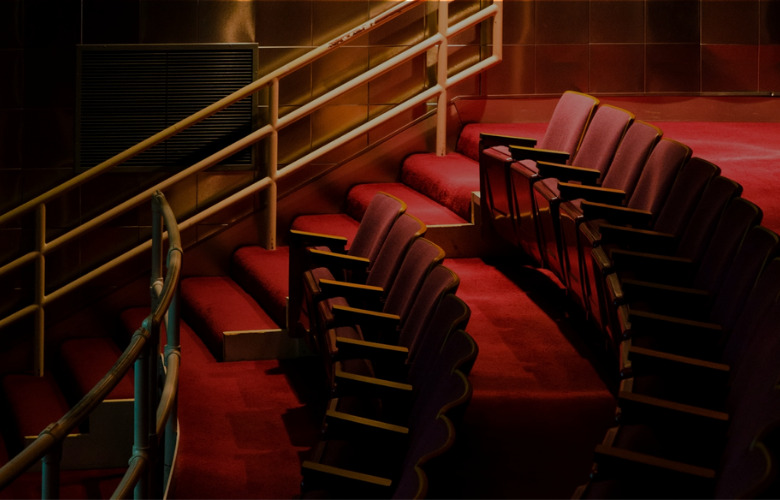
2020 was anticipated a new year. A new year of theatrical productions in the West End, Broadway and around the world. The stage was set (as the story goes).
Then it stopped.
Overnight theatres closed, with no timescale of when they would re-open. Suddenly the questions of how and where broadcast and social technologies could be embedded into the language of theatre came to a stop. Necessity dictated that swift action was required. New tools were needed to be learned, as we all made the move from office working to home working and then to creating remotely.
When the Covid-19 pandemic enforced a nationwide shutdown of theatre venues across the UK, the obvious question was how will we engage audiences whilst venues are shut? The first stage in the process was to stream past performances. National Theatre Live lead the way with some of their most iconic performances being made available to watch online (premiered on YouTube).
Some personal favourites for me were: The hysterically funny 2011 production of One Man Two Guvnors starring James Corden and the high stakes political thriller This House. Other streaming highlights included Wild from Hampstead Theatre and Mood Music from the Old Vic Theatre. These were archive shows filmed for broadcast at a later date. Social media enabled wider distribution of these shows and broader discussions than their initial runs. Whilst beneficial to the audience watching it and being free to watch in most cases it enabled venues to bridge the gap to audiences in the immediate aftermath of the national lockdown starting in late March.
Whilst audiences and artists were working remotely and venues were closed, a vacuum emerged. To begin with, Zoom, the app of choice for 2020, was the focal point. Its functionality as the primary method of engagement throughout the year suddenly became a springboard for this emerging mode of performance. Tom Stoppard’s A Separate Place presented in early May and starring David Morrissey, Jenna Coleman, Denise Gough, Ed Stoppard and Maggie Service all filmed in separate locations started to show the creative possibilities shown by Zoom by playing with virtual backgrounds and the gallery display.
Productions in this new era also began to look at duration. The Donmar Warehouse’s production of Midnight Your Time, in which a mother tries to keep in regular contact with her daughter over FaceTime, was only 30 minutes in duration. Michael Sheen and David Tennant starred in Staged on BBC One and each episode was 15 minutes in length. The six part series was about two actors whose West End show has been cancelled due to the Covid-19 pandemic and shows how they plan to adapt the show over video conferencing. User Not Found, a 60 minute video podcast which asks the audience to make a decision on whether or not to delete a digital life was an interesting exploration of duration. The video podcast was an adaptation of the live show which I was lucky enough to see in 2019. The show very much leant itself to a digital adaption by virtue of the fact the show is about technology and is told through headphones and a smart phone.
The Understudy (Lawrence Batley Theatre) was part radio play and part animated film which told the story of how an understudy tries overcome battles with his wife and colleagues in a West End Show. What A Carve Up! was a murder mystery played out in the style of a Netflix-style documentary that fused archive film, drama and animation. Produced by The Barn Theatre, Lawrence Batley Theatre and New Wolsey Theatre it gave audiences a designated slot to view the production with a 48 hour viewing window.
In November 2020, as a mark not just of its stake in the social media landscape but also the lexicon of public discourse TikTok was announced as a partner to The London Evening Standard’s £120,000 fund to support the next generation of theatre makers. This followed an announcement earlier in the year that Netflix was also donating a large amount to the Theatre Support Fund. As TikTok and Netflix have already shown in the social media and television landscape, disruption is healthy and can lead to new forms of entertainment. New endeavours have to be tested and it will need developing all the time but surely that is the point of a creative journey? It is not necessarily the destination but the journey of how we got there.
This hybrid mode of performance utilising the social and broadcast technologies which have enabled us to stay connected with the vision and creative will of performers, directors and writers is not a permeant division from live performance. However it shows that the marriage between live and technology enables some exciting and still possibly untapped future possibilities not just for any future lockdowns but in terms of engaging and inspiring a future generation of theatre-makers.
Virtual and Hybrid Events: Oh How We Pivot!
Finding Ways: The Theatre Industry Flexes Through Covid



Experienced Theatre professional with a demonstrated history of working in the performing arts industry. Skilled in marketing, event management, presenting, workshop leading and working with young people.
Read Full Profile© 2021 TheatreArtLife. All rights reserved.

Thank you so much for reading, but you have now reached your free article limit for this month.
Our contributors are currently writing more articles for you to enjoy.
To keep reading, all you have to do is become a subscriber and then you can read unlimited articles anytime.
Your investment will help us continue to ignite connections across the globe in live entertainment and build this community for industry professionals.